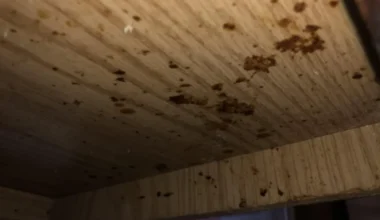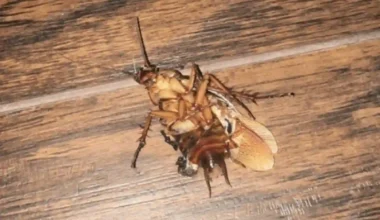Can I break my lease because of roaches in Texas? Well, let’s start by saying that you have spotted multiple roaches since you moved into your Texas apartment. The most recent encounter probably involved a shocking sight of 5-10 roaches scattered throughout your apartment. Despite your landlord’s attempts to seal the unit and continue treatment, the problem has only escalated. With children and pets in the house, you have had to restrict their activities and resort to storing all your belongings in tightly sealed plastic tubs to prevent roach contact. Obviously, this issue has taken a toll on your mental health, making you feel uncomfortable and unsafe within your own home.
Perhaps, your landlord has proposed moving you to another apartment within the same building as a solution. However, you are skeptical about this offer, especially since you have heard stories about roach problems in other units, despite the landlord’s claim that no other units have reported roach sightings.
What you really want is to terminate your lease early due to the safety, health, and mental health concerns this problem has caused. However, your landlord is not open to this idea. You’re left wondering if you have any legal grounds to break the lease. Of course, this roach problem is your ground.
Can I Break My Lease Because of Roaches in Texas?

Living in a rental property infested with roaches can be a nightmare. Not only do these pests pose a health risk, but they can also cause psychological distress, making your home feel uncomfortable and unsafe. In Texas, as a tenant, you may wonder if you have the legal grounds to break your lease due to a roach infestation. The answer to this question lies in understanding the Texas Property Code, specifically Chapter 92, which governs residential tenancies.
Roach infestations are considered a serious issue that can significantly impact the physical health and safety of a typical tenant. To address such conditions, you must adhere to the landlord-tenant provisions outlined in the Property Code. You can’t simply decide you’ve had enough and vacate the premises.
If you do so, your landlord could claim you’ve defaulted on the lease, demand all remaining payments upfront, and potentially sue you for all the remaining rent.
For a condition that significantly impacts the physical health or safety of an ordinary tenant, the landlord is obligated to carry out repairs or remedy the condition. As the tenant, you need to give written notice of the condition and request repairs.
If the landlord doesn’t rectify the cockroach condition, or make a diligent effort to do so, you should send a second notice. If the landlord still doesn’t resolve the condition, or make a diligent effort to do so within a reasonable timeframe, you have the right to terminate the lease, rectify the condition yourself and hold the landlord responsible for the cost, or pursue one of the other remedies outlined in Texas Property Code section 92.056.
However, note that you cannot simply declare that you are fed up and move out. If you do, the landlord could declare you in default of the lease, accelerate all the remaining payments, and sue you for all the remaining rent.
The Landlord’s Responsibility
The landlord’s responsibility to maintain the property in a habitable condition is a fundamental aspect of the landlord-tenant relationship. This includes ensuring the property is free from pests such as roaches. If the landlord fails to address the problem after being notified, the tenant may have grounds to break the lease. However, it’s crucial to follow the proper legal procedures to avoid potential penalties.
The Tenant’s Rights
As a tenant, you have the right to live in a safe, healthy, and habitable environment. If your landlord fails to address a roach infestation, you may have the right to break your lease. However, consult with a legal professional before taking this step. They can guide you through the process and ensure you’re protected under the law.
Conclusion – Can I Break My Lease Because of Roaches in Texas?
Dealing with a roach infestation in a rental property can be a distressing experience. However, tenants do have rights, and in some cases, it may be possible to break your lease due to roach infestation. Understand your lease agreement, document the issue, and seek legal advice if necessary.
Remember, this information should not be taken as legal advice. Always consult with a legal professional for advice tailored to your specific situation.
In the end, everyone deserves to live in a safe, clean, and habitable environment. If your rental property is not meeting these standards due to a roach infestation, know your rights and take the necessary steps to protect your health and well-being.





